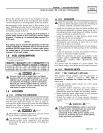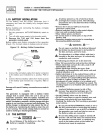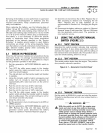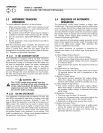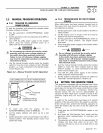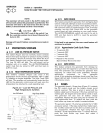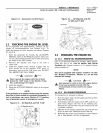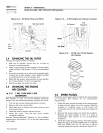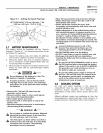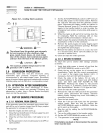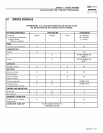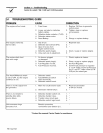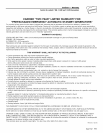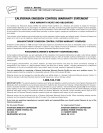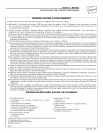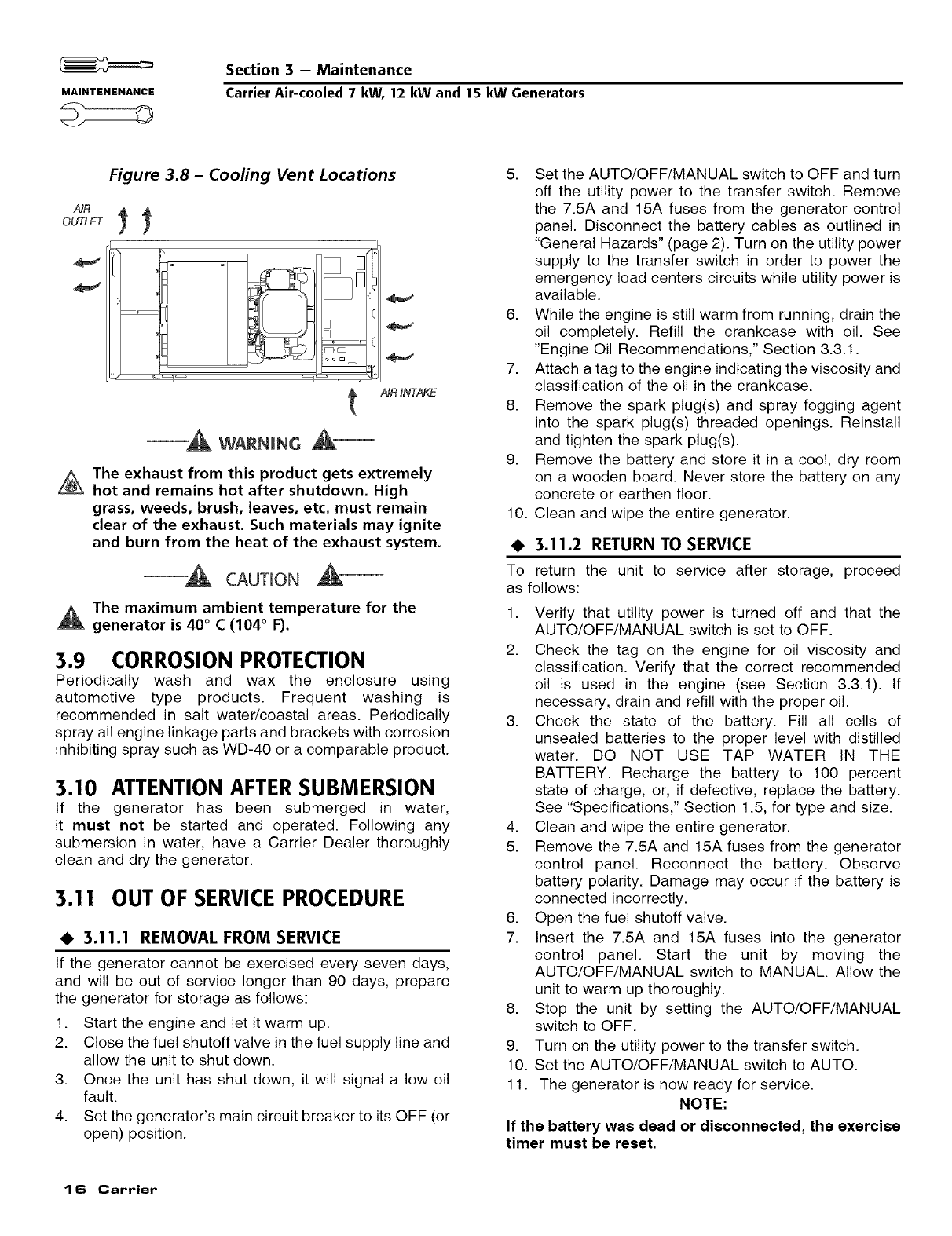
MAINTENENANCE
Section 3 -- Maintenance
CarrierAir-cooled 7 kW, 12 kW and 15 kW Generators
Figure 3.8 - Coofing Vent Locations
[] D
t
°_ WARNING
/dRINTAKF
_The exhaust from this product gets extremely
hot and remains hot after shutdown. High
grass, weeds, brush, leaves, etc. must remain
clear of the exhaust. Such materials may ignite
and burn from the heat of the exhaust system.
CAUTEON
_The maximum ambient temperature for the
generator is 40 ° C (104 ° F).
3.9 CORROSION PROTECTION
Periodically wash and wax the enclosure using
automotive type products. Frequent washing is
recommended in salt water/coastal areas. Periodically
spray all engine linkage parts and brackets with corrosion
inhibiting spray such as WD-40 or a comparable product.
3.10 ATTENTION AFTER SUBMERSION
If the generator has been submerged in water,
it must not be started and operated. Following any
submersion in water, have a Carrier Dealer thoroughly
clean and dry the generator.
3.11 OUT OF SERVICE PROCEDURE
3.11.1 REMOVAL FROM SERVICE
If the generator cannot be exercised every seven days,
and will be out of service longer than 90 days, prepare
the generator for storage as follows:
1. Start the engine and let it warm up.
2. Close the fuel shutoff valve in the fuel supply line and
allow the unit to shut down.
3. Once the unit has shut down, it will signal a low oil
fault.
4. Set the generator's main circuit breaker to its OFF (or
open) position.
5. Set the AUTO/OFF/MANUAL switch to OFF and turn
off the utility power to the transfer switch. Remove
the 7.5A and 15A fuses from the generator control
panel. Disconnect the battery cables as outlined in
"General Hazards" (page 2). Turn on the utility power
supply to the transfer switch in order to power the
emergency load centers circuits while utility power is
available.
6. While the engine is still warm from running, drain the
oil completely. Refill the crankcase with oil. See
"Engine Oil Recommendations," Section 3.3.1.
7. Attach a tag to the engine indicating the viscosity and
classification of the oil in the crankcase.
8. Remove the spark plug(s) and spray fogging agent
into the spark plug(s) threaded openings. Reinstall
and tighten the spark plug(s).
9. Remove the battery and store it in a cool, dry room
on a wooden board. Never store the battery on any
concrete or earthen floor.
10. Clean and wipe the entire generator.
3.11.2 RETURN TO SERVICE
To return the unit to service after storage, proceed
as follows:
1. Verify that utility power is turned off and that the
AUTO/OFF/MANUAL switch is set to OFF.
2. Check the tag on the engine for oil viscosity and
classification. Verify that the correct recommended
oil is used in the engine (see Section 3.3.1). If
necessary, drain and refill with the proper oil.
3. Check the state of the battery. Fill all cells of
unsealed batteries to the proper level with distilled
water. DO NOT USE TAP WATER IN THE
BATTERY. Recharge the battery to 100 percent
state of charge, or, if defective, replace the battery.
See "Specifications," Section 1.5, for type and size.
4. Clean and wipe the entire generator.
5. Remove the 7.5A and 15A fuses from the generator
control panel. Reconnect the battery. Observe
battery polarity. Damage may occur if the battery is
connected incorrectly.
6. Open the fuel shutoff valve.
7. Insert the 7.5A and 15A fuses into the generator
control panel. Start the unit by moving the
AUTO/OFF/MANUAL switch to MANUAL. Allow the
unit to warm up thoroughly.
8. Stop the unit by setting the AUTO/OFF/MANUAL
switch to OFF.
9. Turn on the utility power to the transfer switch.
10. Set the AUTO/OFF/MANUAL switch to AUTO.
11. The generator is now ready for service.
NOTE:
If the battery was dead or disconnected, the exercise
timer must be reset,
1 6 Carrier



